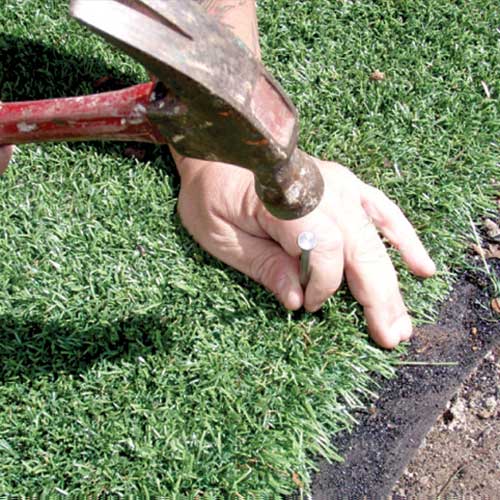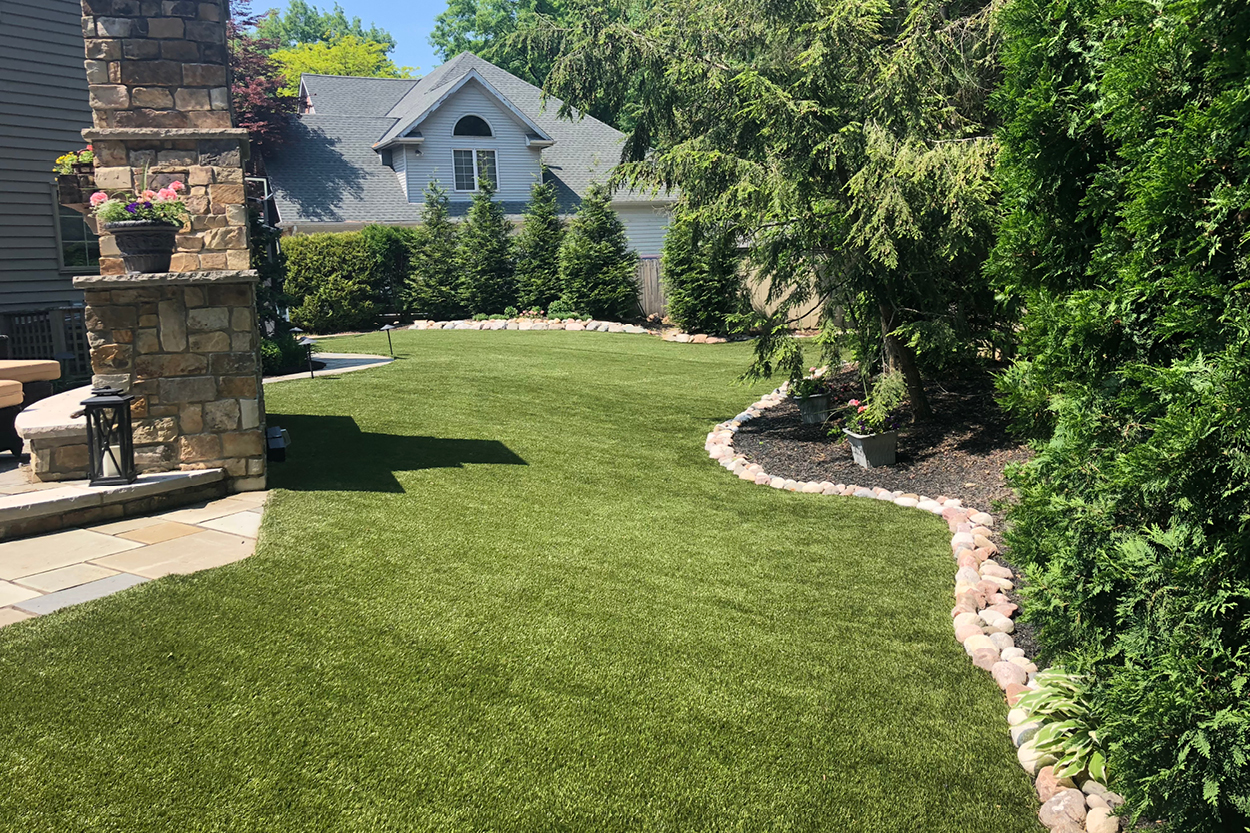Dependable Artificial Turf Companies Phoenix for a Lush and Evergreen Lawn
Dependable Artificial Turf Companies Phoenix for a Lush and Evergreen Lawn
Blog Article
See Why Homeowners Prefer Synthetic Grass for Sustainable Landscaping Practices
As home owners progressively prioritize sustainability in landscape design, fabricated lawn has emerged as an engaging choice to typical lawn. Its capacity to conserve water, minimize maintenance efforts, and minimize ecological impact settings it as a functional choice for those looking for eco-friendly remedies. In addition, the aesthetic appeal and convenience of synthetic grass deal with varied style preferences. The implications of this change prolong past mere benefit and looks, motivating a more detailed evaluation of just how these selections affect broader environmental outcomes. What stays to be explored is the complete extent of advantages that synthetic grass can offer to property owners and the setting alike.
Water Preservation Advantages
One of the most significant advantages of synthetic grass is its role in water conservation. Typical grass lawns need significant quantities of water to maintain their rich look, usually leading to overuse of neighborhood water sources, particularly in arid areas. On the other hand, synthetic grass eliminates this demand entirely, as it does not call for watering. This not only conserves water but likewise decreases the pressure on municipal water systems, particularly during drought problems.
Furthermore, the installment of synthetic grass can add to a much more sustainable landscape. Property owners can significantly decrease their water costs, permitting reallocation of sources to various other ecological initiatives or household uses. Furthermore, artificial lawn is made to stand up to different weather problems without the requirement for supplemental watering, making it a suitable option for regions encountering water deficiency.
The environmental benefits extend past prompt water cost savings. By decreasing water usage, fabricated lawn assists to reduce the impacts of climate change, protecting vital environments that are threatened by excessive water extraction. As sustainable landscaping techniques gain traction, artificial lawn emerges as a liable option for homeowners seeking to create environment-friendly exterior spaces.
Lowered Maintenance Efforts
Synthetic grass dramatically reduces upkeep efforts compared to typical yard lawns. With man-made turf, property owners can eliminate the time-consuming tasks connected with natural landscape design, such as mowing, feeding, and weeding. This not only saves important time but likewise decreases physical labor, making lawn treatment accessible for people of every ages.
Among one of the most remarkable advantages is the absence of normal mowing. Standard lawns call for frequent cutting to preserve an aesthetically pleasing height, whereas fabricated lawn continues to be consistently lush without the need for cutting. Additionally, property owners no longer require to apply pesticides or plant foods, which are typically required to maintain all-natural lawn healthy and balanced. This change not just lightens the work however also advertises a neater, a lot more uniform appearance year-round.
Furthermore, synthetic grass is durable and durable, requiring marginal maintenance beyond periodic brushing and rinsing to eliminate debris. This convenience of upkeep allows property owners to appreciate their outside spaces without the continuous worry of maintenance, supplying more time for recreation and household tasks. Ultimately, the lowered maintenance initiatives associated with synthetic grass make it an enticing alternative for those looking for a low-maintenance, aesthetically appealing landscape.

Ecological Influence Decrease
There is a growing recognition of the ecological benefits connected with synthetic grass, especially in terms of water preservation and minimized chemical use. Conventional yards call for significant quantities of water, particularly in drought-prone areas, bring about raised pressure on neighborhood water sites resources. In contrast, synthetic grass eliminates the demand for watering, substantially decreasing water usage and promoting sustainability.
Additionally, standard lawn maintenance often includes the application of herbicides, plant foods, and pesticides, which can add to soil and water pollution. Man-made lawn minimizes this environmental risk by needing marginal maintenance and practically removing the demand for dangerous chemicals. This not just improves dirt health but likewise shields local communities from poisonous overflow.
Moreover, the manufacturing of natural lawn yards commonly includes the usage of fossil fuels for cutting and landscaping devices, more adding to greenhouse gas exhausts. By choosing synthetic grass, home owners can significantly lower their carbon impact associated with grass care activities.
Aesthetic Appeal and Adaptability
In enhancement to its environmental benefits, man-made turf offers considerable visual allure and flexibility for landscape design. House owners can attain a lush, environment-friendly look year-round, removing the seasonal changes typically related to all-natural turf. This consistent visual not only boosts the aesthetic charm of a residential property yet also adds to a properly maintained and refined appearance.
Additionally, fabricated turf is readily available in a selection of styles, colors, and structures, enabling personalization to match private preferences and style motifs - Phoenix turf companies. Whether used in property yards, business spaces, or leisure areas, it can seamlessly integrate into diverse landscaping styles, from contemporary minimalist to rich tropical settings
The versatility of synthetic grass expands beyond mere appearance; it can be set up in various locations, including roofs, patios, and also indoor areas, developing chances for distinct landscaping solutions. In addition, it appropriates for a variety of tasks, from kids's play areas to pet-friendly atmospheres, giving capability without endangering style.
Inevitably, the aesthetic appeal and convenience of fabricated grass make it an appealing alternative for home owners seeking lasting landscaping options that do not sacrifice appeal for ecological duty.

Long-Term Expense Savings
Among the most compelling benefits of synthetic grass is its possibility for long-term price financial savings. Unlike natural yard, which requires routine upkeep-- consisting of mowing, watering, feeding, and pest control-- synthetic grass significantly minimizes these ongoing costs. official statement Home owners can save a significant try this site quantity on water expenses, especially in regions where water shortage is a pressing concern. The removal of grass treatment solutions further adds to financial savings, as there is no need for customized devices or labor.
Additionally, artificial turf has a life expectancy of 15 to 25 years, depending upon its top quality and use. This durability lessens substitute prices, making it an extra affordable selection in the future. The first financial investment in man-made grass can commonly be recovered with the cost savings accrued over time.
While the upfront cost might appear greater contrasted to turf setup, the collective cost savings from minimized maintenance and water usage typically exceed these initial expenses. Eventually, the adoption of synthetic grass not only advertises a lasting landscape design option but additionally supplies house owners an economically savvy alternative that lines up with long-term budgeting objectives.
Final Thought
Synthetic grass becomes an engaging option for lasting landscape design, providing considerable benefits in water conservation, minimized upkeep initiatives, and decreased ecological influence. Its visual allure and flexibility enhance the aesthetic landscape while straightening with modern sustainability objectives. Additionally, lasting price financial savings add to its attractiveness for property owners. As areas increasingly focus on eco-friendly techniques, the fostering of synthetic grass stands for a progressive step towards achieving lasting and resistant landscapes.
Furthermore, fabricated lawn is made to hold up against various weather conditions without the need for additional watering, making it an excellent selection for areas dealing with water shortage. (Phoenix turf companies)

Artificial lawn emerges as an engaging choice for lasting landscaping, offering substantial advantages in water preservation, minimized maintenance initiatives, and reduced environmental influence.
Report this page